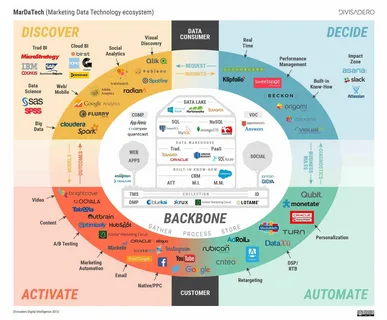Bengaluru, often hailed as the true “Silicon Valley of India,” has become a highly thriving hub for tech startups and innovation. The city’s tech ecosystem offers a fertile ground for startups to grow, experiment, and disrupt industries. In this competitive landscape, data analytics has emerged as a powerful tool that helps startups gain valuable insights, optimize various operations, and make data-driven decisions. This article explores how data analytics can benefit startups in Bengaluru’s tech ecosystem and how enrolling in a data analytics course in Bangalore can equip professionals with the skills needed to actively leverage data analytics effectively.
The Role of Data Analytics in Startups
Data analytics involves collecting, processing, and analyzing data to extract actionable insights that drive various business decisions. For startups, data analytics plays a crucial role in various aspects of their operations, including:
- Understanding Customer Behavior: Startups can analyze customer data to understand preferences, pain points, and buying patterns, enabling them to tailor products and several services accordingly.
- Optimizing Marketing Strategies: Data analytics helps startups identify the most effective marketing channels, measure campaign performance, and optimize marketing spend.
- Improving Operational Efficiency: By analyzing internal data, startups can identify inefficiencies, optimize processes, and minimize costs.
- Driving Product Development: Data analytics provides insights into product usage, feedback, and trends, enabling startups to develop products that meet customer needs.
Key Data Analytics Techniques for Startups
Several data analytics techniques can help startups in Bengaluru’s tech ecosystem make informed decisions and gain a competitive advantage:
- Descriptive Analytics
Overview: Descriptive analytics involves summarizing historical data to understand what has happened in the past. This technique helps startups gain insights into their performance, customer behavior, and market trends.
Example: A fintech startup in Bengaluru can use descriptive analytics to analyze monthly sales data, identify peak sales periods, and understand which products or services are most popular among customers.
Benefits:
- Provides a clear picture of business performance.
- Helps identify patterns, trends, and anomalies in historical data.
Tools: Excel, Tableau, Power BI
- Predictive Analytics
Overview: Predictive analytics uses statistical models and machine learning algorithms to forecast various future outcomes based on historical data. This technique helps startups anticipate customer behavior, market trends, and potential challenges.
Example: An e-commerce startup in Bengaluru can use predictive analytics to come up with future sales based on aspects such as seasonality, marketing campaigns, and customer demographics.
Benefits:
- Enables data-driven decision-making and planning.
- Helps startups anticipate changes in customer demand and market conditions.
Tools: Python (Scikit-learn), R, RapidMiner
- Prescriptive Analytics
Overview: Prescriptive analytics goes a step further by providing recommendations on the best course of action to achieve specific goals. This technique helps startups optimize their operations, marketing strategies, and resource allocation.
Example: A food delivery startup in Bengaluru can use prescriptive analytics to assess the most efficient delivery routes, reducing delivery times and operational costs.
Benefits:
- Provides actionable insights and recommendations.
- Helps startups make informed decisions that lead to improved outcomes.
Tools: IBM Watson, Alteryx, Python (SciPy, PuLP)
- Sentiment Analysis
Overview: Sentiment analysis involves analyzing customer feedback, reviews, and social media posts to figure out public sentiment toward a brand, product, or service. This technique helps startups gauge customer perceptions and address issues proactively.
Example: A SaaS startup in Bengaluru can use sentiment analysis to assess social media mentions and reviews, gaining insights into customer satisfaction and identifying areas for improvement.
Benefits:
- Provides insights into customer sentiment and brand perception.
- Helps startups identify and address negative feedback.
Tools: Python (NLTK, TextBlob), R, MonkeyLearn
How Startups in Bengaluru’s Tech Ecosystem Benefit from Data Analytics
- Data-Driven Marketing and Customer Acquisition
Bengaluru’s competitive startup landscape requires businesses to adopt data-driven marketing methodologies to attract and retain customers. Data analytics enables startups to identify their target audience, measure campaign performance, and optimize marketing spend.
Example: A Bengaluru-based edtech startup can analyze website traffic, overall social media engagement, and email marketing metrics to assess the most effective channels for obtaining new customers. By focusing on high-performing channels, the startup can optimize its marketing budget and improve ROI.
- Enhancing Customer Experience and Retention
Understanding customer behavior as well as preferences is essential for delivering a personalized experience that keeps customers engaged. Data analytics allows startups to analyze customer interactions, feedback, and purchasing patterns, enabling them to create tailored experiences that improve retention rates.
Example: A fintech startup in Bengaluru can analyze transaction data and customer interactions to identify patterns and recommend personalized financial products or services. This approach enhances the customer experience, increasing loyalty and retention.
- Optimizing Operations and Reducing Costs
Startups often operate with highly limited resources, making it essential to optimize operations and reduce costs. Data analytics helps startups identify inefficiencies, streamline processes, and allocate resources more effectively.
Example: A logistics startup in Bengaluru can use data analytics to optimize delivery routes, reducing fuel costs and improving delivery times. By analyzing historical delivery data, the startup can identify patterns and implement strategies to minimize delays.
- Developing Data-Driven Products and Services
Startups can leverage data analytics to obtain insights into customer needs, preferences, and pain points, enabling them to develop various products and services that address market demands. By analyzing product usage data, startups can identify features that resonate with customers and prioritize product development accordingly.
Example: A healthtech startup in Bengaluru can analyze user data from its mobile app to identify the most frequently used features, allowing the company to focus on enhancing those features and introducing new ones based on customer preferences.
- Identifying Market Trends and Opportunities
Data analytics helps startups stay ahead of the competition by assessing emerging market trends and opportunities. By analyzing industry data, startups can spot gaps in the market, launch new products, or expand into untapped markets.
Example: A food delivery startup in Bengaluru can analyze consumer ordering trends and identify areas where certain cuisines are in high demand. This insight can help the startup partner with restaurants offering those cuisines or expand its service to underserved areas.
Tools and Technologies for Data Analytics in Startups
Several tools and technologies can help startups in Bengaluru’s tech ecosystem harness the power of data analytics:
- Google Analytics: A web analytics toolkit that provides insights into website traffic, user behavior, and conversion rates, enabling startups to optimize their online presence.
- Tableau: A data visualization tool that allows startups to create several interactive dashboards and reports, making it easy to communicate data insights.
- Python and R: Programming languages widely used for data analysis, various statistical modeling, and machine learning, offering powerful libraries such as Pandas, NumPy, and Scikit-learn.
- Power BI: A Microsoft business analytics tool that helps startups create data visualizations, reports, and dashboards to track performance metrics.
How a Data Analytics Course in Bangalore Can Benefit Startup Professionals
Enrolling in a data analytics course can provide startup professionals with the skills needed to harness the power of data analytics. These courses offer hands-on training, real-world case studies, and expert guidance on using data analytics techniques and tools effectively.
Key Benefits of the Course:
- Practical Experience: Gain hands-on experience using data analytics tools and techniques relevant to startups, such as predictive modeling, customer segmentation, and sentiment analysis.
- Expert Guidance: Learn from various experienced instructors who provide insights into data analytics best practices, challenges, and opportunities in Bengaluru’s startup ecosystem.
- Industry-Relevant Skills: Develop the skills needed to apply data analytics to various aspects of startup operations, including marketing, product development, and customer experience.
Conclusion
Data analytics has become an essential tool for startups in Bengaluru’s tech ecosystem, enabling them to make data-driven decisions, optimize operations, and gain a competitive edge. By leveraging data analytics techniques such as descriptive analytics, predictive analytics, and sentiment analysis, startups can unlock highly valuable insights that drive growth and innovation. Aspiring data analysts and startup professionals can gain the skills needed to excel in this field by enrolling in a data analytics course in Bangalore. As data continues to shape the future of Bengaluru’s tech landscape, mastering data analytics will be a valuable asset for today’s startups looking to thrive in this dynamic environment.
ExcelR – Data Science, Data Analytics Course Training in Bangalore
Address: 49, 1st Cross, 27th Main, behind Tata Motors, 1st Stage, BTM Layout, Bengaluru, Karnataka 560068
Phone: 096321 56744







